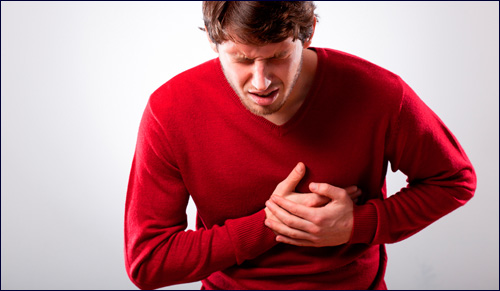 Vampire Weekend's Surprising Jewish Stories
Vampire Weekend's Surprising Jewish Stories


4 min read
3 min read
4 min read
4 min read
Embracing the uncomfortable realization that we are never fully in control.
A close friend of ours had a heart attack recently. Thank God, he is fine. It’s everyone around him that’s in a tizzy. “Did he know he had a heart problem?” “Did he exercise?” “What type of exercise?” “Did he watch his cholesterol intake?” “Did he eat a lot of sugar? Salt?” The questions are endless. And what’s the point? What difference does it make knowing whether he ate too much steak or French fries with salt or neither? Why all the questions?
I have a theory – and it applies to so many of life’s threatening or unwanted situations. We are trying to protect ourselves. We are trying to prevent the same outcome. On some level, of course, that makes sense. If we want to have a healthy heart, we should engage in healthy behaviors, watch what we eat and get regular exercise.
We ask because we want to reassure ourselves. We ask because we want to make sure that it won’t happen to us and we think that if we can go down the list and check the boxes we are safe.
Medical science encourages this belief. “Is there a history of cancer in your family?” “Do you carry the brca gene?” Of course we should ask these questions. Of course we should respond in ways appropriate to our situations. But what if the answer to both those questions is no – are we home free? Can we relax and become complacent? Are we now completely outside the population at risk? Of course not.
Because life has many risks. And, try as we might, we can’t fully protect ourselves (or our children but that’s a whole separate piece!) from them. People who don’t smoke still die of lung cancer. People who are thin and exercise still have heart attacks. Wonderful loving families may raise a child who becomes a drug addict. Bright, talented people with great educations and resumes may find themselves unemployed. There are no guarantees. It doesn’t matter how many boxes we check.
This is the illusion that some of us live with. If we eat “right” and act “right”, no harm will befall us or our children. The converse of this is even more troubling. Those who have suffered must have therefore behaved “wrongly” in one of these areas. This is clearly not true. We don’t know how the Almighty runs the world and while it may certainly be worthwhile to try to “play the odds”, there are no guarantees and we shouldn’t expect any. We shouldn’t feel confident that we are protected or frightened that we aren’t.
Yes, we need to put in our proper effort and act responsibly, but just as important we need to trust in the Almighty that everything will work out exactly as it’s meant to, regardless of how many boxes we have checked. If we think we can guarantee our future, then we think it’s up to us. Once we recognize we can’t, then we simultaneously understand it’s up to the Almighty.
We all so badly want a life with guarantees and protections but this is a world of uncertainty. The only sure thing is our relationship with the Almighty. I read recently (and I paraphrase) something that Rabbi Shimshon Pincus zt”l wrote. He suggested that some of us think that trust in God leads to a carefree, relaxed, anxiety-free existence. He explained that this is not true. Trust doesn’t mean we are never frightened or worried. Trust means that when we are frightened or worried, we turn to the Almighty.
No one’s life was more tumultuous than that of King David. Besieged by enemies from all sides, his Psalms reflect plenty of fear – and then the simultaneous recognition that his only solace and salvation rest with the Almighty. Nowhere is there a suggestion that if he’d been a better father, his son wouldn’t have turned on him (if only they’d played baseball in the back yard), or a better son-in-law, then Saul’s madness wouldn’t have made him the target.
The Almighty has a plan and our job is acceptance, not guilt, not recriminations. I don’t know why our friend had a heart attack. It may motivate all of us to take care of our health and be kinder to our family, which is great, but let’s not forget our primary task – to trust the Almighty and work on feeling secure since He’s behind the wheel.
